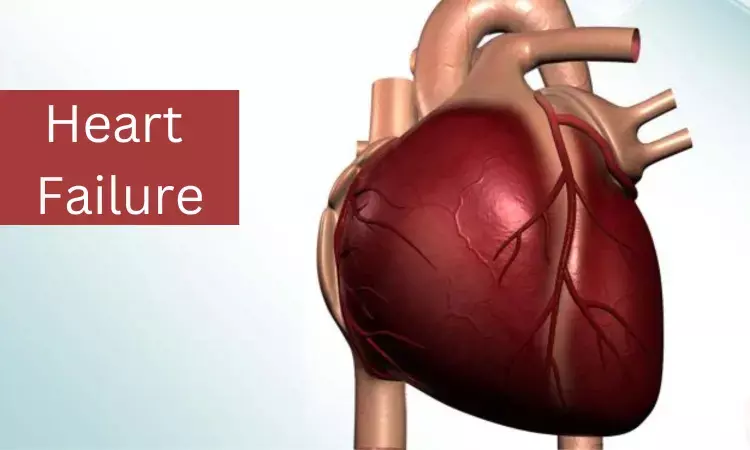- Home
- Medical news & Guidelines
- Anesthesiology
- Cardiology and CTVS
- Critical Care
- Dentistry
- Dermatology
- Diabetes and Endocrinology
- ENT
- Gastroenterology
- Medicine
- Nephrology
- Neurology
- Obstretics-Gynaecology
- Oncology
- Ophthalmology
- Orthopaedics
- Pediatrics-Neonatology
- Psychiatry
- Pulmonology
- Radiology
- Surgery
- Urology
- Laboratory Medicine
- Diet
- Nursing
- Paramedical
- Physiotherapy
- Health news
- Fact Check
- Bone Health Fact Check
- Brain Health Fact Check
- Cancer Related Fact Check
- Child Care Fact Check
- Dental and oral health fact check
- Diabetes and metabolic health fact check
- Diet and Nutrition Fact Check
- Eye and ENT Care Fact Check
- Fitness fact check
- Gut health fact check
- Heart health fact check
- Kidney health fact check
- Medical education fact check
- Men's health fact check
- Respiratory fact check
- Skin and hair care fact check
- Vaccine and Immunization fact check
- Women's health fact check
- AYUSH
- State News
- Andaman and Nicobar Islands
- Andhra Pradesh
- Arunachal Pradesh
- Assam
- Bihar
- Chandigarh
- Chattisgarh
- Dadra and Nagar Haveli
- Daman and Diu
- Delhi
- Goa
- Gujarat
- Haryana
- Himachal Pradesh
- Jammu & Kashmir
- Jharkhand
- Karnataka
- Kerala
- Ladakh
- Lakshadweep
- Madhya Pradesh
- Maharashtra
- Manipur
- Meghalaya
- Mizoram
- Nagaland
- Odisha
- Puducherry
- Punjab
- Rajasthan
- Sikkim
- Tamil Nadu
- Telangana
- Tripura
- Uttar Pradesh
- Uttrakhand
- West Bengal
- Medical Education
- Industry
Routine measurement of cardiac biomarkers can help reclassify pre heart failure stages

USA: A recent study has suggested that cardiac biomarkers incorporation into HF (heart failure) assessment may better pinpoint patients otherwise missed by older disease.Researchers have found in ARIC study that inclusion of cardiac biomarkers into HF assessment may better pinpoint patients who otherwise would have been missed by older disease definitions. One in five asymptomatic elderly individuals in the study were reclassified from Stage A to Stage B through the inclusion of natriuretic peptide or cardiac troponin elevations.
"The routine biomarkers measurement can help identify people at higher risk of heart failure who may benefit most from HF prevention efforts.
The study has been published online in JACC: Heart Failure.
The findings align with recommendations from the most recent heart failure guidelines from the ACC (American College of Cardiology), the AHA (American Heart Association) and the HFSA (Heart Failure Society of America). The guidelines revised the HF staging system, emphasizing early detection of stage A (at risk) and stage B or pre-HF (asymptomatic with structural evidence of heart dysfunction). The guidelines recommend blood tests for cardiac troponin and natriuretic peptides in Stage B assessment in keeping with a proposed new universal HF definition.
Xiaoming Jia from Baylor College of Medicine in Houston, Texas, USA, and colleagues evaluated the impact of cardiac biomarkers incorporation to reclassify heart failure in 5,324 participants (mean age, 75.8 years) without prevalent HF enrolled in the Atherosclerosis Risk in Communities study and assessed Stage B prognosis using cardiac biomarkers.
Individuals were classified as Stage Anew and Stage Bnew HF using N-terminal pro–B-type natriuretic peptide (<125 pg/mL or ≥125 pg/mL), abnormal cardiac structure/function by echocardiography, and high-sensitivity troponin T (<14 ng/L or ≥14 ng/L). Further evaluation of Stage Bnew was done as elevated biomarker only, abnormalities in both (echo + biomarker), and abnormal echocardiogram only. Risk for incident HF and all-cause death was also assessed.
The authors reported the following findings:
- 81.3% of individuals were classified as Stage Bnew, with 21.1% meeting the criteria for elevated biomarkers only.
- Compared with Stage Anew, Stage Bnew was associated with an increased risk of incident HF (HR: 3.70) and death (HR: 1.94).
- Stage Bbiomarkers only and Stage Becho only were associated with increased HF risk, whereas Stage Bbiomarkers only were also associated with increased death.
- Stage Becho+biomarker had the highest risk for HF (HR: 6.34) and death (HR: 2.53).
"Incorporation of cardiac biomarkers based on the new HF guideline, approximately one in five older adults without prevalent heart failure to Stage B," the researchers wrote. "The routine biomarkers' measurement can help helo in identifying individuals at higher HF risk who may benefit from efforts of HF prevention."
Reference:
Jia, X., Al Rifai, M., Ndumele, C. E., Virani, S. S., de Lemos, J. A., Lee, E., Shah, A. M., Echouffo-Tcheugui, J. B., Bozkurt, B., Hoogeveen, R., Selvin, E., Ballantyne, C. M., & Nambi, V. (2023). Reclassification of Pre-Heart Failure Stages Using Cardiac Biomarkers: Atherosclerosis Risk in Communities (ARIC) Study. JACC: Heart Failure. https://doi.org/10.1016/j.jchf.2022.12.005
Dr Kamal Kant Kohli-MBBS, DTCD- a chest specialist with more than 30 years of practice and a flair for writing clinical articles, Dr Kamal Kant Kohli joined Medical Dialogues as a Chief Editor of Medical News. Besides writing articles, as an editor, he proofreads and verifies all the medical content published on Medical Dialogues including those coming from journals, studies,medical conferences,guidelines etc. Email: drkohli@medicaldialogues.in. Contact no. 011-43720751


